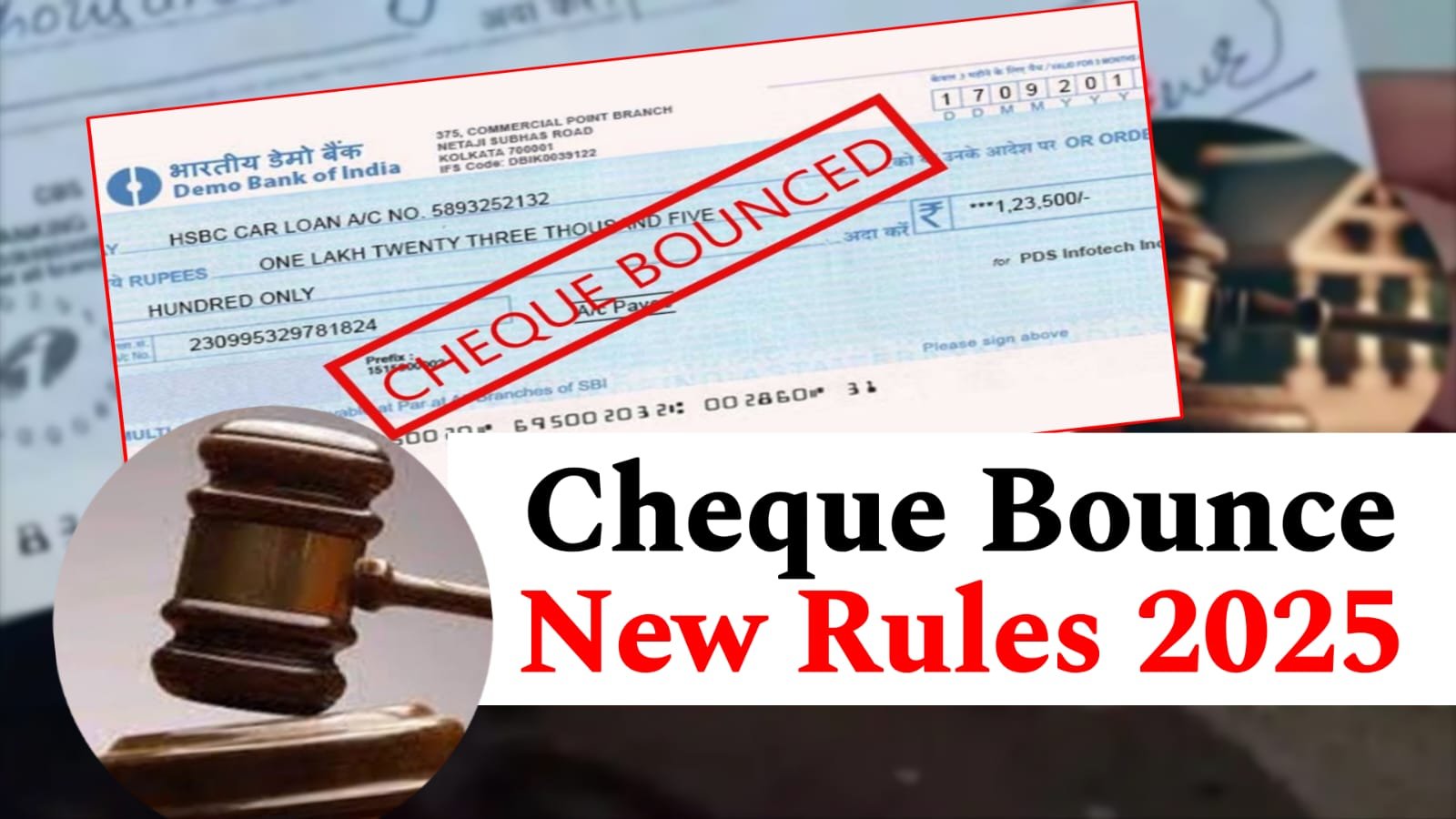Cheque Bounce New Rules : Many people still use cheques for large transactions. Using a cheque is simple and convenient, but there are certain rules associated with it. However, from Oct 15, 2025, the rules related to cheque bounce have become stricter. Under these new Cheque Bounce Rules, major changes have been introduced regarding imprisonment, double penalty, and other legal actions. Let’s understand these new rules in detail.
Purpose Behind the New Rules
To make the cheque payment system more transparent, the government has tightened the regulations surrounding cheque bounce cases. The goal of these new rules is to prevent fraud and misuse in cheque-based transactions.
If you also deal with cheques regularly, here’s what you need to know about the major changes in the Cheque Bounce Rules and how they will impact customers.
Major Changes in Cheque Bounce Rules
According to the new rules, if someone intentionally causes a cheque to bounce, they will face strict punishment. In such cases, the offender may face:
- Imprisonment for up to two years, and
-
A fine of up to double the cheque amount.
That’s not all — the hearing process for cheque bounce cases in court will now be faster. The Madras High Court has also issued special directions to simplify this process and ensure speedy resolution.
Extended Time to File a Complaint
Earlier, under the previous Cheque Bounce Rules, a complaint had to be filed within one month of the cheque being dishonored. However, under the new rules, the time limit to file a complaint has been extended to three months.
This change will help complainants get more time to present their case and evidence properly before the court.
Online Complaint Facility Introduced
Under the new rules, complaints related to dishonored cheques can now be filed online. Digital evidence will also be accepted in such cases. This digital approach will make it easier and faster to register a complaint.
In addition, the same set of procedures will now apply uniformly across all banks. This means that regardless of which bank the cheque belongs to, the legal action process will remain the same.
Notification Within 24 Hours
If a cheque bounces, both the account holder and the payee will be notified within 24 hours via SMS and email. The bank will also inform them of the specific reason for the cheque bounce — such as insufficient balance, incorrect signature, or account closure.
Account May Be Frozen After Repeated Bounce
According to the new rules, if a person’s cheque bounces three consecutive times, the bank may temporarily freeze their account.
This step aims to enforce financial discipline and maintain trust in the banking and payment system.
How to Avoid Cheque Bounce
There are several reasons why a cheque may bounce. To avoid cheque bounce, you should:
- Always maintain sufficient balance in your account.
- Fill in the date and payee’s name correctly on the cheque.
- Use good quality ink and avoid using damaged or torn cheques.
- Draw two parallel lines and mark the cheque as “Account Payee” to ensure safe transfer.
- Regularly check your bank statement to monitor transactions.
-
If there is any delay in payment, inform the recipient in advance.
Legal Penalties for Cheque Bounce
Cheque bounce is considered a criminal offense under Section 138 of the Negotiable Instruments Act, 1881.
Under this law:
- The offender can be imprisoned for up to two years,
- A fine of up to double the cheque amount can be imposed, and
-
They may also have to bear court fees and legal expenses.
Additionally, a fine between ₹100 and ₹750 may be charged depending on the case.



